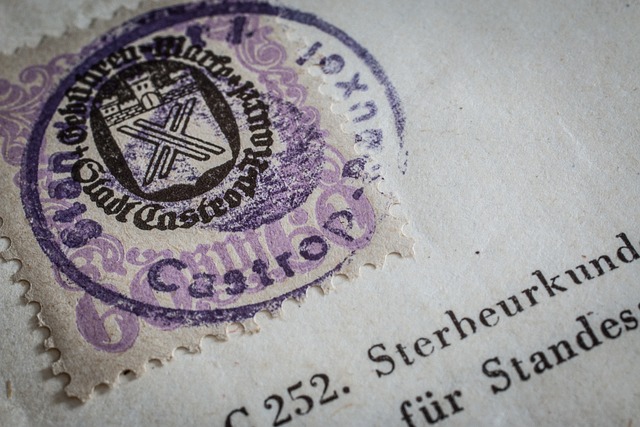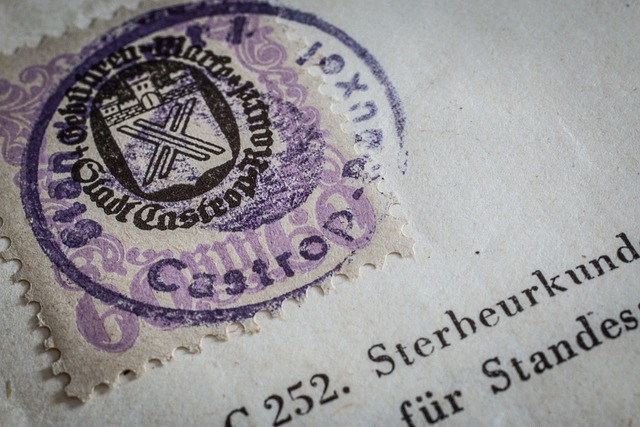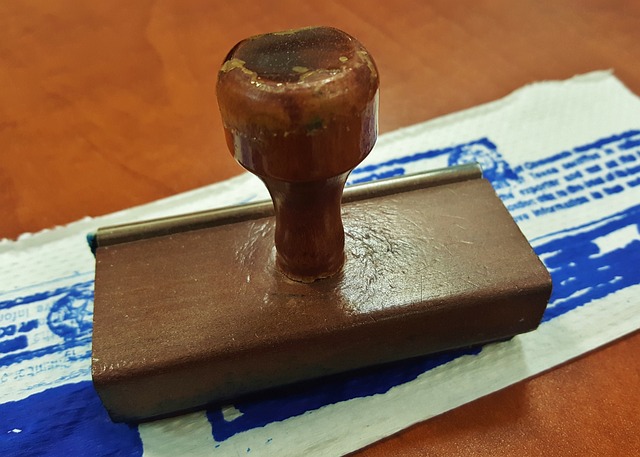Notarised translation services UK are indispensable for immigration processes, ensuring document authenticity and legal acceptability. These services guarantee precise translations conforming to destination country laws, especially critical for visa cases requiring stringent documentation. A notary public verifies the translator's signature, adding credibility to records from home countries. These services are crucial for cross-border transactions, international business deals, and immigration processes, ensuring official recognition and admissibility of translated documents in courts and official bodies. Certified translations, particularly notarised ones, are essential for verifying visa application documents, safeguarding against discrepancies that could delay or deny applications.
Are you navigating the complex world of visa applications? Certified translations for notarised records are a crucial step to ensure your documents meet legal requirements. This guide delves into the significance of notarised translations in UK visa cases, exploring the legal framework, choosing the right service, integration within various visa types, and how technology is shaping this field. Discover key considerations and avoid common pitfalls as you embark on your application journey.
- Understanding Notarised Translations: A Necessity in Visa Cases
- – Definition and significance of notarised translations.
- – The role they play in verifying official documents for visa applications.
- The UK Legal Framework: Notarisation and Translation Requirements
- – Legal guidelines and regulations concerning notarised translations in the UK.
- – The difference between a notarial act and certified translation.
Understanding Notarised Translations: A Necessity in Visa Cases

When applying for visas or any official immigration process, understanding the significance of notarised translations cannot be overstated. Notarised translation services UK play a pivotal role in ensuring the authenticity and legal acceptability of documents. This is particularly crucial when dealing with records that have been officially certified or signed.
In visa cases, where documentation must meet stringent requirements, a professional notarised translation service guarantees that all submissions are precise and conform to the laws of the destination country. It involves an independent third party, known as a notary public, who verifies the authenticity of the translator’s signature on the translated document, adding an extra layer of credibility and legal weight. This is essential when presenting records from your home country, ensuring they are accurately represented and understood by immigration authorities.
– Definition and significance of notarised translations.

– The role they play in verifying official documents for visa applications.

Certified translations play a pivotal role in verifying official documents for visa applications. They ensure that records submitted by applicants are authentic and accurately represent their original content. Notarised translation services UK, for instance, offer a crucial step in this process, providing an official seal of approval that enhances the integrity of the documentation. This is particularly important given the sensitive nature of visa cases, where even minor discrepancies can delay or deny applications.
Such translations are not merely word-for-word equivalents; they involve skilled professionals who possess not only linguistic proficiency but also a deep understanding of legal and administrative contexts. This expertise guarantees that technical terms and legal phrases are rendered accurately, mitigating risks associated with misinterpretation or miscommunication. Consequently, certified translators contribute significantly to the overall success and efficiency of visa applications, ensuring that official records are handled with precision and reliability.
The UK Legal Framework: Notarisation and Translation Requirements

The UK legal framework places significant emphasis on document authenticity and accuracy in visa cases. Notarisation is a critical process that confirms the identity of the signer and attests to the genuineness of the signature. For translated records, an additional layer of verification is required to ensure the translation’s reliability. This is where certified translations come into play, offering a professional service that meets the strict standards demanded by UK immigration authorities.
When it comes to notarised translation services UK, professionals must adhere to specific guidelines. The translator not only translates the document but also certifies its accuracy and authenticity, making it acceptable for legal purposes. This process ensures that any records submitted as part of a visa application are reliable, thereby facilitating the application’s progress.
– Legal guidelines and regulations concerning notarised translations in the UK.

– The difference between a notarial act and certified translation.

A notarial act and a certified translation are two distinct processes with different functions in legal documentation. A notarial act is a formal declaration made by a public notary, who is an independent legal officer. This act involves witnessing and certifying the authenticity of a signature on a document, ensuring its validity and genuineness. It’s often used for legal, academic, or business purposes where a high level of authentication is required.
On the other hand, a certified translation is a process where an approved translator accurately translates a document from one language to another while certifying the accuracy of the translation. Unlike a notarial act which authenticates the signature and the document’s origin, a certified translation ensures the textual content is faithfully rendered from one language to another. Both services are crucial in visa cases, particularly when dealing with foreign-issued documents, ensuring their acceptance and legitimacy in the UK through notarised translation services UK.
